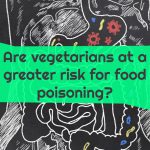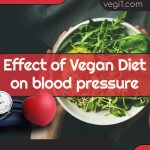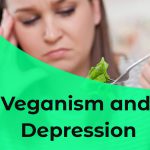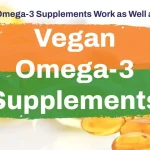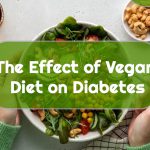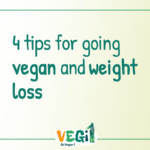Why does vegan food make some people have diarrhea right after?
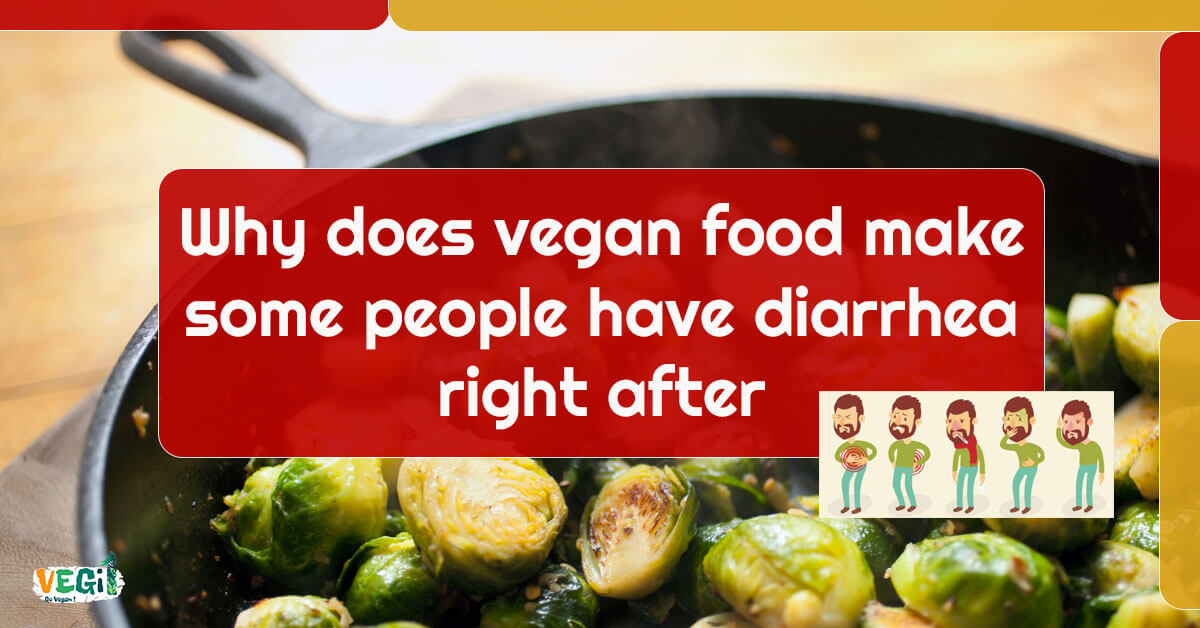
In this article, we will talk about why Vegan food Causes some people to have diarrhea right after.
Diarrhea is not a good sign. You may think you are eating healthy, but you are actually eating stuff that causes you irritation, which turns into diarrhea. Both constipation and diarrhea may be the product of a very bad diet. Now, I have no idea of what you are eating thinking it’s a “healthy diet”, but I can suggest you a good way to eat a healthy enough diet without having such issues and also avoiding such problems.
Now, let’s go to what we have all been waiting for. I am really excited to share my information and experience with you and you are going to have a lot of fun. First, let’s read my story and see what happened to me.
The story I want to tell you is nothing but the story of my becoming a vegetarian. What happened to me when I became a vegetarian? Let’s go to know it.
In this article you will read:
The story of my vegetarianism
In my 40s, I took up photography and started noticing the animals around me, particularly the ducks in the park, how beautiful they were, how tightly knit were their family bonds. Just as I was awakening to the intricacies of the animal world (outside household pets), I was driving one day and pulled up at a red light opposite a massive truck carrying pigs to slaughter.
I looked into the truck, through the mesh, and saw these sweet pigs, little snouts, sad eyes, eyes looking right back at me. And I heard myself give myself a commandment: Anosha, you are never going to participate in the harming of animals again.
Until that very minute I’d been a meat-eater. Even though I loved Morrissey and Chrissie Hynde, and Moby, and the late Linda McCartney, their messages had never gotten through to me, about slaughterhouses and the evil done to animals. But when I saw it, first hand, and felt the shock and horror – well, that changed my life forever.
Ten years later, and I am a proud vegan. I went vegan overnight. Actually I went vegan the minute I saw that truck. I never again touched a sausage, a hamburger, a piece of cheese – and I don’t miss it. The thought of biting into animal flesh is disgusting to me because it means I would be consenting to the horror of the brutal murder of an innocent animal.
Similarly, the thought of drinking cow’s milk is abhorrent because I have become aware of the torture of the dairy farm. Where male calves are separated from their mothers at birth and kept confined in small crates, deprived of adequate nourishment, so that their meat can be more palatable to the folks who order veal without thinking they are eating a dead baby animal.
I gave away all my leather purses. My leather shoes. I have no trouble finding gorgeous vegan accessories – if anything, there’s so much to choose from that I have too many bags now.
I live in a very cold city – Toronto – and I keep very warm without wearing a down parka. You’d be surprised how toasty synthetic materials can keep you, even on the coldest days, when it’s -30 Celsius with a wind chill (as it has been for many days this past winter).
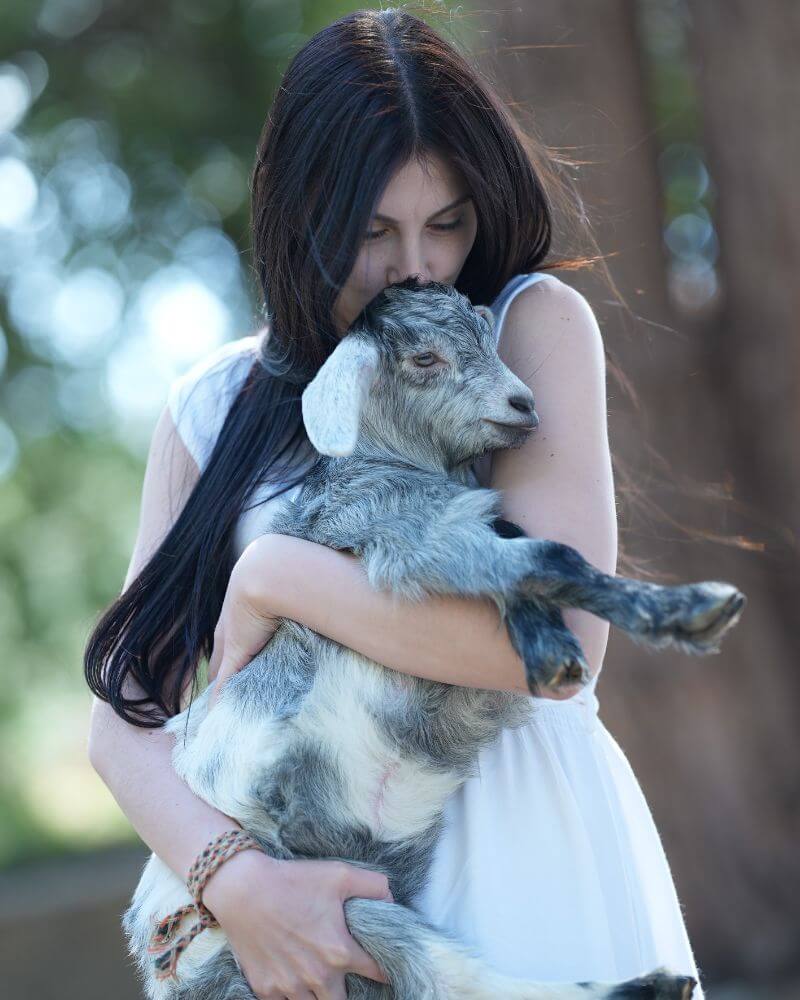
I went vegan because veganism alone expresses my deep abiding love for all of nature, including animals yes, but also the people who are starving in other countries because so much of the grains we produce in the west go to feed livestock. Don’t get me wrong, I love cows, and I’ve looked over the fence a couple of times to pat the cows that live on farms just outside the city. They respond with such love, I could cry.
Vegans and meat-eaters alike can each make themselves unhealthy by eating a bad diet, but there’s nothing about a plant-based diet that would cause someone to be unhealthy. My suspicion is that most people on a vegan diet pay far more attention to healthy nutrition than non-vegans.
So, Why does vegan food make some people have diarrhea right after?
The detoxification phenomenon in the form of diarrhea can happen to anyone after consuming plant food.
I had diarrhea at the beginning of my Vegan journey, this is a normal process, the body is fighting a shock caused by a change in diet. The more I researched, the more I realized that many other vegans had this problem.
It took me two weeks to cure the diarrhea, and after my digestive system was completely detoxified, I got used to a plant based diet.
Now, My body is not bloated even after eating beans.on the contrary, if I mistakenly eat something that contains eggs or broth, my body’s immune system will be activated, and I’ll immediately experience nausea and diarrhea.
During my detox and transformation to vegan I tried to find many alternatives to the minerals my body needed
Like vegetable protein substitutes, plant sources of iron, herbal sources of vitamin B, and plant sources of Omega 3, etc…
Your best course of action is to just start eating better immediately.Proponents will refer to all of these things as proof that you’re detoxing, in fact, they’re signs that your body is experiencing a serious change.
Vegan diets are often high in fiber
Fiber is great for digestive health overall, but it can also cause some tummy troubles, especially if you’re not used to eating a lot of it. When you eat fiber, it draws water into your intestines, which can make your stool softer and more bulky. This can lead to diarrhea, especially if you’re eating a lot of fiber at once.
Foods containing FODMAPs
Some vegan foods, like beans, lentils, and cruciferous vegetables, contain FODMAPs. FODMAPs are short-chain carbohydrates that can be difficult for some people to digest. When you eat FODMAPs, they can ferment in your intestines, which can produce gas and diarrhea.
Allergies
Some people may have food allergies or intolerances to certain vegan foods. For example, some people are allergic to soy or gluten, and others may have difficulty digesting legumes. If you have diarrhea after eating vegan food, it’s important to pay attention to which foods seem to trigger it and talk to your doctor if you’re concerned.
If your diarrhea continues and you experience the problem for a long time, I will explain the causes of diarrhea and Remedies below.
Other Diarrhea Related Causes in Vegetarianism and Remedies
Carbohydrate Intolerance (Fructose and Fructose Polymers):
If you’ve been experiencing digestive issues related to carbohydrate intolerance, it’s important to address them for better gut health. For some individuals, FODMAPs, which stands for fructo-, oligo-, di-, and monosaccharides and polyols, can be a challenge. These compounds can lead to maldigestion and malabsorption, especially when consumed in excess. Fructose polymers, in particular, can cause gastrointestinal symptoms like diarrhea, as our bodies lack the necessary enzymes to break down these complex fructose chains.
For those with fructose intolerance, common sources of trouble include table sugar (sucrose) and free fructose found in high-fructose corn syrup (HFCS). Managing these intolerances often involves keeping a food and symptom journal for 7-14 days, where you record everything you eat and note any symptoms that arise. This nots can help pinpoint trigger foods and uncover potential nutrient deficiencies, which can also contribute to diarrhea. Stress, physical activity, and sleep patterns should also be tracked.
Another approach is the elimination diet, where problematic foods are completely removed from your diet for 4 to 12 weeks. After this period, you gradually reintroduce these foods while monitoring symptoms.
For effective management, it’s advisable to consult with a registered dietitian (RD) or physician who can provide personalized guidance based on your specific dietary intolerances.
Small Intestine Bacterial Overgrowth (SIBO):
If you suspect you have SIBO, which stands for Small Intestine Bacterial Overgrowth, it’s essential to address it to alleviate gastrointestinal symptoms. SIBO occurs when bacteria that typically reside in the large intestine migrate to the small intestine, where they can cause problems. The small intestine usually has mechanisms to prevent bacterial overgrowth, such as gastric acid, bile, and pancreatic enzymes, which can kill or inhibit bacteria. Peristalsis, the natural movement of the intestines, also helps keep bacteria in check.
SIBO can result from intestinal issues like strictures, obstructive disease, or surgical procedures that disrupt normal intestinal flow. To manage SIBO, a key focus is on modifying your diet. Carbohydrate consumption is a central concern because when carbohydrates reach the site of bacterial overgrowth in the small intestine, they trigger a feeding frenzy, leading to gas and organic acid production.
One dietary strategy is to limit refined rapidly-fermenting carbohydrates like starches, sugars, and sugar alcohols and replace them with whole grains and vegetables. This can help reduce bacterial proliferation and improve gut motility.
For effective management, consult with healthcare professionals, including physicians and registered dietitians, who can guide you in dietary modification and addressing nutrient deficiencies associated with SIBO.
Irritable Bowel Disease (IBD):
If you’ve been diagnosed with Inflammatory Bowel Disease (IBD), such as ulcerative colitis (UC) or Crohn’s disease (CD), it’s crucial to manage your condition to control symptoms like diarrhea. IBD involves chronic inflammation of the bowels and often presents with intermittent periods of symptom exacerbation and remission.
For those with UC, inflammation typically starts in the rectum and extends into the colon, while CD can affect the entire gastrointestinal tract.
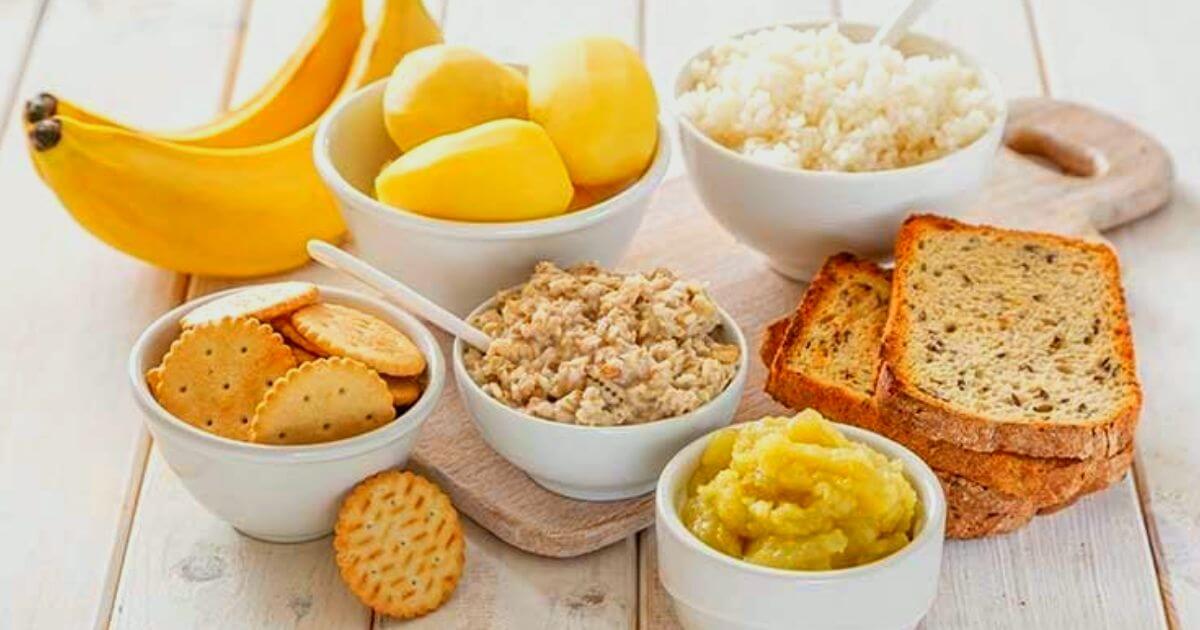
.
Management of IBD involves medical treatment and Medical Nutrition Therapy (MNT). While there’s no one-size-fits-all dietary protocol for IBD, several general dietary measures can be beneficial:
- Choose well-tolerated foods.
- Minimize dietary fat intake, especially if you have fat malabsorption or ‘steatorrhea.’
- Limit dietary fiber intake.
- Consider eating smaller, more frequent meals if you experience gas and bloating.
- Prebiotics and probiotics may be helpful in some cases.
- Test for food intolerances, including fructose, non-absorbable carbohydrates like artificial sweeteners, and stimulants like caffeine.
Since the management of diarrhea in IBD can vary depending on the individual and the underlying cause, it’s essential to work closely with healthcare professionals, including gastroenterologists and dietitians, to tailor your treatment and dietary plan to your specific needs.
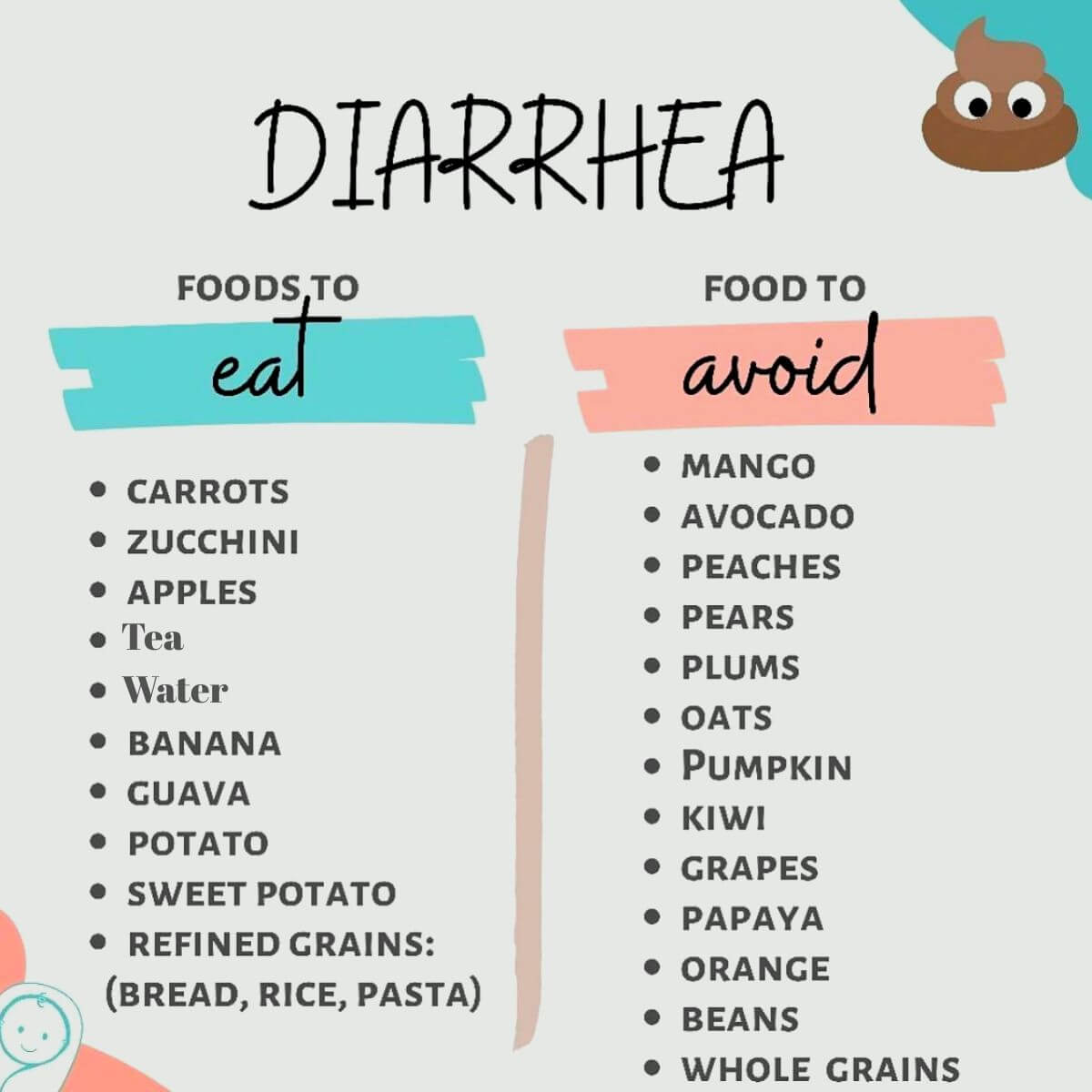
When you have diarrhea, do not go to the following:
-
Fried and Spicy Foods
- Fried and spicy foods can irritate your digestive system and make diarrhea worse.
- Avoid fried foods, such as french fries.
- Stay away from spicy foods, such as chili or hot sauce.
- Try cooking with herbs and mild spices instead, such as basil or oregano.
-
High-Fiber Foods
- High-fiber foods can be difficult to digest when you have diarrhea, so it’s best to avoid them until your symptoms subside.
- Stay away from whole grains, nuts, and seeds.
- Avoid raw fruits and vegetables.
- Stick to low-fiber fruits and vegetables, such as bananas and cooked carrots.
-
Caffeine and Carbonated Beverages:
Caffeinated beverages like coffee and certain sodas can have a laxative effect and may exacerbate diarrhea. Carbonated beverages can also contribute to gas and bloating. It’s best to avoid these drinks until your digestive system settles.
The Best Foods for Stopping Diarrhea:
-
Bananas
- Bananas are an excellent choice when you’re suffering from diarrhea. They’re rich in potassium, which can help regulate the balance of fluids in your body, and they also contain pectin, a type of soluble fiber that can help firm up your stool.
-
White Rice
- White rice is another great option for stopping diarrhea. It’s easy to digest and can help absorb excess fluids in your digestive system.
- Cook white rice and eat it plain or with a little bit of salt.
- Try making rice pudding with almond milk and honey for added sweetness.
Other Tips for Managing Diarrhea:
-
Stay Hydrated
- It is crucial to drink enough fluids to replace the fluids lost during diarrhea. Water, herbal teas, and electrolyte drinks can help replenish fluids and prevent dehydration. However, it’s best to avoid drinks that can irritate the digestive system, such as alcohol and caffeine.
- Drink at least 8 glasses of water a day.
- Avoid sugary drinks, as they can make diarrhea worse.
- Coconut water is an excellent source of electrolytes and can help replenish fluids and minerals.
-
Rest and Relax
Resting and avoiding stress can help your body heal and reduce diarrhea symptoms. Stress can worsen diarrhea and make it more difficult for your body to heal. If you’re feeling stressed, try some relaxation techniques, such as deep breathing or meditation.
- Take time off work or school to rest and recover.
- Practice stress-relieving techniques such as meditation, yoga, or deep breathing exercises.
- Avoid intense exercise or physical activity until your symptoms have improved.
- Get plenty of sleep to help your body recover.
- Try to avoid stressful situations or people if possible.
-
Seek Medical Attention if Necessary
- If your diarrhea lasts for more than a few days or if you have severe symptoms such as dehydration, bloody stool, or fever, you should seek medical attention. Your doctor may recommend over-the-counter medications or prescribe antibiotics if necessary. In some cases, further tests or procedures may be needed to identify the underlying cause of your diarrhea.
Keep a record of your symptoms and any foods or drinks that seem to trigger your diarrhea to help your doctor make an accurate diagnosis.
How can I stop bloating after eating?
You get bloated because hydrogen gas (sometimes methane) is accumulating during food digesting.
You will increase the amount of hydrogen if:
- You drink water 10 minutes or less before you start eating.
- You drink water while eating.
- You don’t properly chew your food.
- You drink water less than 1.5 hour (for vegetarian food) or 2hours (for proteins) after eating.
- You mix complex carbs (grains) or sugars with proteins.
- You eat extremely large portions.
Water in your duodenum will dilute enzymes that your pancreas releases thus producing indigestion.
The only reason people drink water while eating is to make it easier swallowing so they don’t have to chew the food properly. By design you have to chew your food until it is moist enough with your saliva. Water helps you to swallow faster at the expense of proper digestion. You gain a few minutes of your time while damaging your health.

Conclusion
In conclusion, I would like to summarize why vegetarian food causes some people to have diarrhea immediately after.
The detoxification process that accompanies the transition to vegetarianism can cause temporary digestive complications.
Detoxification in the form of diarrhea can happen to anyone after consuming plant foods. This is the body’s natural reaction to changing to a new food style.
Also, if you have been struggling with diarrhea for a long time, take the role of fiber, gut microbiota, and possible allergies or intolerances seriously.
Here are a few tips for avoiding diarrhea on a vegan diet:
- Increase your fiber intake gradually.
- Choose soluble fiber sources over insoluble fiber sources. Soluble fiber dissolves in water and is easier to digest.
- Cook your beans and lentils thoroughly. This helps to break down some of the FODMAPs.
- Avoid cruciferous vegetables in large quantities.
The solutions presented in this article can help you to effectively overcome this challenge. Keep in mind that everyone’s body system is unique and patience is an important tool for getting your body used to a new diet.
Remember, vegan food can be a healthy and delicious part of your diet. Just be sure to add new foods gradually and listen to your body. If you’re having trouble tolerating certain vegan foods, there are many plant-based alternatives.
The solutions presented in this article can help you to overcome this challenge effectively. Keep in mind that everyone’s body system is unique and patience is an important tool to get your body used to a new diet. .


